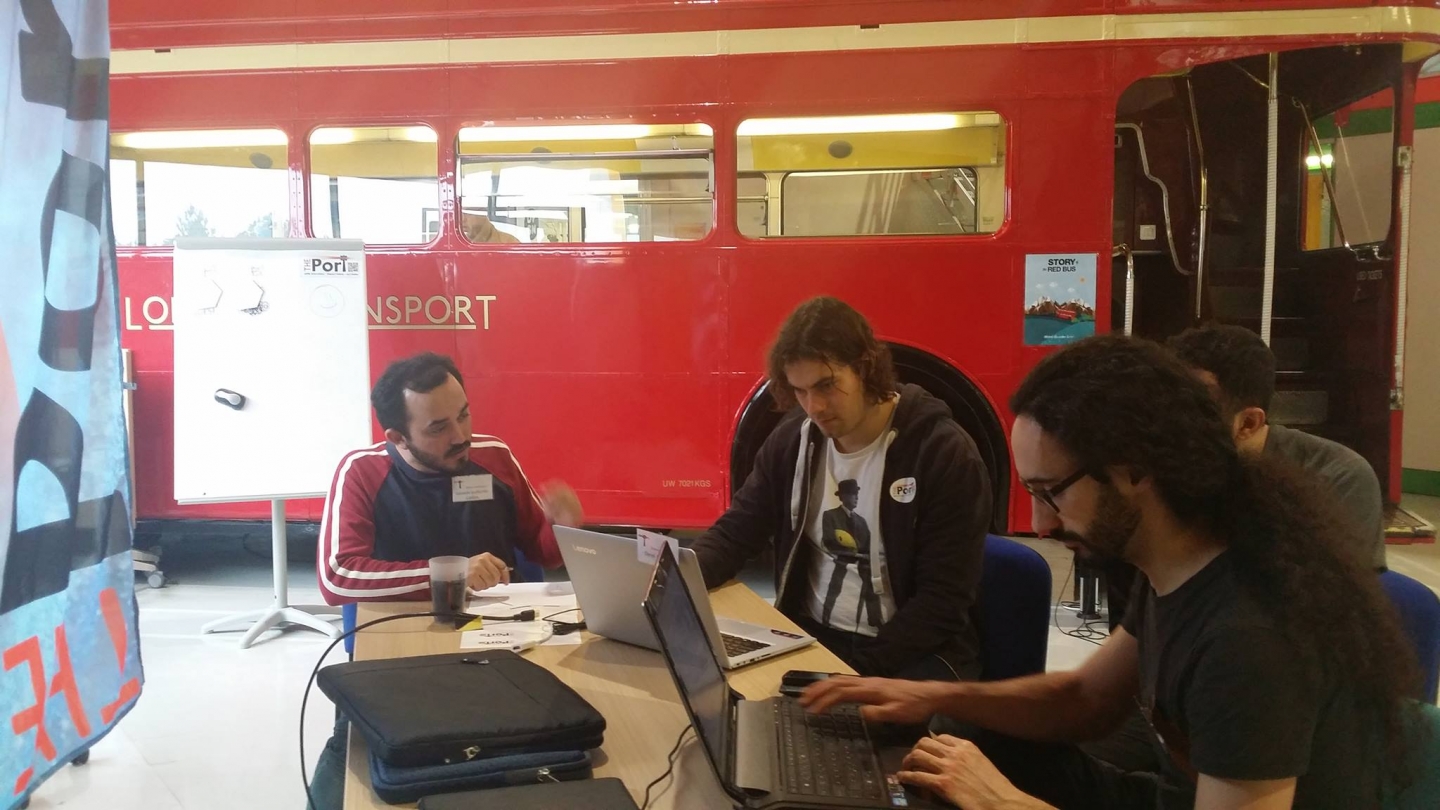The challenge: write a white paper, research paper or grant application in less than 60 hours. The Science Hackathon 2017 was open to every scientist struggling with a particular problem or anyone who wanted to offer their skills to help others with their research problem. What was the outcome? Automated construction of network maps for refugee simulations, forecasting for the reception of Internally Displaced Persons (IDPs), machine learning to predict suicidal behaviour, and ways to keep cars cool are just some of the topics that came out of this year’s Science Hackathon.
Special guest Derek Groen, the organiser of the first ever science hackathon, travelled from London to participate in the event and to speak about his experience. Groen’s presentation shed light on the common challenges faced by hackathon participants.
Below are some of the highlights of the event.
Davide Alocci, Diana Suleimenova and Joao Campos proposed an automated tool that would construct network maps of all points, paths and refugee camps available for simulations of refugee movements. The tool would provide information to governments and organisations such as the UNHCR about where refugees go and how to allocate humanitarian resources.
Derek Groen, Eric Bosne and Gerardo Guillermo drafted a paper on forecasting for IDP reception after a disaster. According to the group’s agent-based model, each family would make decisions based on a set of rules, such as the location of conflicts, the distance between cities and the location of friends or relatives. Training and verification during the weekend with actual data from UNHCR showed good agreement for some parameters in the initial phase of the simulation and also allowed the group to specify which additional data from UNHCR could help to improve the simulation’s predictions.
There are existing studies on the use of machine learning to predict suicidal behaviour from data generated through social media. Achintya Rao, Daniel Dobos and Lorena Lobato instead proposed a series of “wellness check-ins” that people around the world would anonymously complete in order to produce a model based on differential equations. The tool would rate depression from the point of view of the users, rather than relying on expert input.
During the summer months, when temperatures reach over 30°C, cars may overheat, causing burns, dehydration and other harmful effects. Khurram Shahzad, Oday Darwich and Sameed Muhammed drafted a grant proposal for a device that would address this issue. The device would automatically cover the car with a heat-resistant material at the flip of a switch. An app would also allow the user to monitor the temperature of their car remotely.
All the groups plan to take their projects further by publishing journal articles or applying for grants.
What’s next?
The call for challenges is now open for the 2017 THE Port Humanitarian Hackathon. The big event will take place from 6 to 8 October. Go to www.theport.ch and submit a challenge before 31 March.
Want to stay connected? Follow us on Facebook and on Twitter @theportatcern

